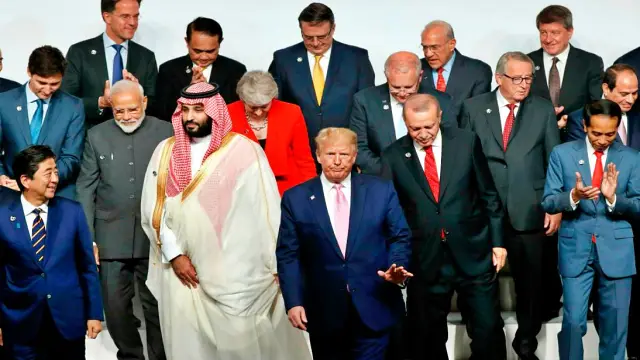Today Subash Jayaraman (The Cricket Couch) announced that after 189 episodes, he has discontinued his highly regarded podcast series ‘Couch Talk’. Since I wrote about it early 2013, Couch Talk has gone from strength to strength. It became a regular feature on ESPNCricinfo and the great and the good from the cricket world appeared on it.
It goes without saying that my review had little to do with these developments. As I pointed out then, my view of Couch Talk appears from a privileged standpoint. Subash has shared with me the guests he wanted to invite, his efforts at pursuing the many superstars who appeared on his show, and the lessons he learnt about the complicated world of agents, contracts, embargoes and egos. He has discussed how he imagined the shape of many of his interviews and would often go through many drafts of both individual questions, and the sequence in which they were to appear. Not only was there a sequence, there were often subjects he absolutely wanted to broach, and the subjects which he was willing to forego should the conversation develop in an unforeseen but interesting direction. I bring this up to illustrate the careful, methodical preparation which formed the basis of every single interview. The hours spent in pursuing and persuading guests, preparing interviews, editing and transcribing the recordings and working with editors meant that every 20-40 minute interview easily involved 20-30 hours of work.
It is impossible to be a professional cricket journalist. Given that the game is a monopoly (called the ICC), nobody whose living depends on this monopoly can ever hope to have anywhere close to the required leverage to commit journalism (this would involve scrutinizing the monopoly). As a result, the world of professional cricket reporting, despite being financially rewarding (increasingly so with the advent of the franchise game) contains very few lifers. The veterans of the field tend to cover sport and even other beats. Other talented writers and reporters tire of the job and move on to other fields within a few years. Unlike the Government, there is no “Right to Information” act, nor is there any democratic expectation of disclosure from private societies and associations like the BCCI and the ICC, let alone from the vast private corporations which make vast profits from the game by broadcasting it on TV. Despite its pretentions, the ICC is not an adversarial body by design (like the Government) and does not really owe anybody any answers.
As a result, much of what passes for journalism consists, in effect, of serving as a third party publicist for the game and its stars. It is a truism that celebrity is more profitable than controversy and controversy is more profitable the argument. So published material must, as a rule, be shiny and simple. Complexity, inconvenient foundational questions (“how much money is too much money?”, “Is T20 cricket?”, “to what extent does cricket have a place in it for women?”, “does the power in cricket lie with the Boards or the TV companies?”) and the complicated responses which might do justice to them are not the every day bread and butter of the cricket media. As a rule, podcasts have to be loud, must consist of at least two participants who have wisecracks ready-at-hand. As a rule, longer stories must be features about players, and should steer away from mundane day to day material reality in favor of peddling nostalgia (“how did you feel when you reached a hundred that day?”). This is not the case because the reporters are stupid or unimaginative, it is the case because it is what sells. One only has to listen to them in private conversation to know how they really feel about much of this.
All this makes a podcast like Subash’s extremely unlikely. Nurturing it for 189 episodes is about as difficult as a 189 on a bad pitch against an all-time great Test attack.
It remains to Subash’s eternal credit that once his podcast grew into a regular feature on Cricket’s biggest home on the internet, he remained (to a great extent) true to his amateur, outsider’s beginnings. Even though he did shows with big stars (which were popular and eagerly anticipated by listeners, readers and editors alike), he also stayed true to his original idiosyncratic interests in the margins of the international men’s game. The West Indies Under 19 coach, Graeme West, India all-rounder Shikha Pandey, Edward Fox, “Archi” Archiwal and their dream of building a home for cricket in Kansas and Peter Chismon, the world traveller cricket fan have been on Couch Talk, as has Oliver Broom who cycled from London to Brisbane to watch the 2010-11 Ashes.At the same time, Curtly Ambrose, David Gower, John Buchanan and nearly every major superstar you can think of also feature in Subash’s 189 interviews over five years.
Want to know the ins and outs of the Supreme Court of India’s rulings on the corruption in the IPL? You couldn’t do better than to listen to Subash’s interview with two lawyers – Suhrith Parthasarathy and Aju John – on the subject. Want to learn of the difficulties of reporting on spot fixing? Listen to the former editor of Sports Illustrated India Kadambari Murali. Here is another wonderful interview with Ebba Qureshi who is married to the Pakistan and Surrey all-rounder Azhar Mehmood. This interview with Saqlain Mushtaq for The Cricket Monthly is, in my opinion, Subash’s finest interview with a player.
Umpires, writers, editors, filmmakers, administrators, franchise executives and cricket fans all appeared on Couch Talk during its five year run. Many of them appeared multiple times. Together, they constitute an immense corpus – a record of the game in this time which only the biggest portals with their massive budgets and writing/reporting staffs can claim to match. If one wanted, for example, to instruct Subash’s fellow Americans in the history and the art of cricket, Couch Talk would form the perfect documentary backbone of a first class graduate seminar on the subject.
Knowing Subash as I do, I’m confident that this is not the end. Cricket is changing in radical and often unwelcome ways. Having called off his regularly scheduled programming, Subash is now freed from having to conduct the bread and butter interviews with the standard issue international cricketer. These were, in my opinion, his least interesting and least significant interviews (having discussed this with him, I know he does not entirely agree). If there is a genuinely significant development in the game, I have no doubt that Subash’s interest will be piqued again and Couch Talk will approach and pass its double century in only the most exquisitely crafted singles.
In anticipation of these, farewell Couch Talk.



















